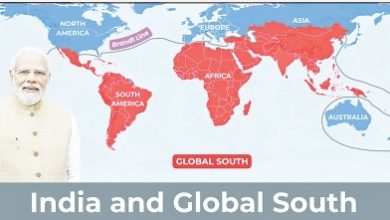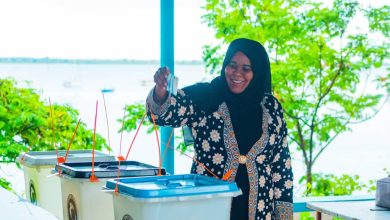Connectivity: Why mobile coverage isn’t enough

IF you walk through most towns in Tanzania today, you will see mobile towers standing tall, shining with blinking lights at night. These towers represent network coverage — the signal that allows us to make calls, send texts and connect to the internet.
On paper, the country looks impressive: More than 90 per cent of the population is covered by at least a 3G signal. But here is the challenge: While the towers are there, not everyone is using the internet in a meaningful way.
The percentage of people who go online regularly, for learning, farming, health or business, is much lower — around 30–40 per cent. This gap between coverage and usage is one of the biggest barriers to digital transformation in Tanzania today. Experts call it the “usage gap.”
What is meaningful connectivity?
“Meaningful connectivity” is more than just having a signal bar on your phone.
It means: 1. Regular Internet Use – being able to go online daily, not just once in a while.
2. Affordable Access – data bundles and devices that do not swallow half your income.
3. Quality Connection – at least 4G speeds, stable enough for videos, learning and apps.
4. Useful Content and Skills – knowing how to use the internet safely and productively. Without these, coverage remains a symbol, not a solution. For many Tanzanians, especially in rural areas, the cost of data and smartphones is simply too high.
A small bundle of 1GB might cost 2–5 per cent of monthly income. When a family must choose between food and data, the choice is obvious. Also, many still rely on feature phones that can only make calls and send SMS.
Even the cheapest smartphones are beyond reach for farmers, petty traders or students in rural areas. Imagine giving someone a smartphone without showing them how to use WhatsApp, Google or farming apps. Many citizens, especially older people, do not have digital literacy skills.
They fear “spoiling the phone” or “pressing the wrong thing.” Without proper training, people may never explore the opportunities that internet access brings. For example, a farmer in Mbeya might not know there are free apps that provide weather updates or market prices for maize.
The internet is full of information, but much of it is in English, not Kiswahili or local languages. A villager in Iringa may not see value in the internet if the platforms do not speak their language or address their needs. There are limited apps or websites focusing on local realities — farming advice in Kiswahili, local health information or affordable online learning platforms for Tanzanian youth.
Some people hesitate to go online because of fraud, scams, identity theft or harmful content. Stories of fake job offers, mobile money fraud and cyberbullying spread quickly, making others afraid of using the internet.
Trust is an essential part of meaningful connectivity. Without strong consumer protection and cybersecurity awareness, adoption will remain low. One of the least discussed but most important enablers of usage is cybersecurity.
Even when connectivity is available, many Tanzanians hesitate to go online or engage in digital services because of security fears and misinformation.
Cybersecurity therefore stands at the heart of meaningful connectivity. – Mobile Money Risks: Tanzania leads Africa in mobile money usage (M-Pesa, Tigo Pesa, Airtel Money).
Yet, fraud cases such as SIM swaps, phishing and fake loan apps undermine trust. Stronger authentication, fraud detection tools and user awareness campaigns are needed to protect confidence in these platforms.
– Digital Literacy & Safety: First-time internet users in rural areas often lack awareness of cyber risks. Promoting digital literacy combined with cyber hygiene (safe passwords, recognising scams, privacy awareness) is as vital as building towers or laying fiber. – Institutional Safeguards: The Tanzania Personal Data Protection Act (2022) and the National Cybersecurity Strategy provide frameworks for safer online participation.
However, enforcement and awareness among ordinary citizens are crucial for impact. – Critical Infrastructure Protection: As the nation embraces e-government, e-health and digital agriculture, safeguarding national data centres in Iringa, Dodoma and Dar es Salaam becomes central. Trust in these systems determines how far citizens and businesses engage digitally.
In some communities, social norms limit internet use. For example, women may be discouraged from owning mobile devices or spending time online. Young people may be told that “the internet is only for wasting time on social media,” instead of being encouraged to use it for education or business.
Why this usage gap matters for Tanzania?
The government’s Digital Tanzania Project (DTP) and National ICT Broadband Backbone (NICTBB) have done a great job expanding coverage. But unless we close the usage gap, the benefits of these investments will not reach ordinary citizens.
• Agriculture: Farmers cannot access real-time weather alerts or find better markets for their crops.
• Finance: People without internet cannot use mobile banking, digital payments or online savings apps.
• Health: Telemedicine and online consultations cannot reach patients who are offline.
• Education: Students miss out on e-learning and global knowledge resources. In short, without meaningful connectivity, coverage alone does not bring development. It is like building roads without vehicles to use them.
How to bridge the gap?
Affordable Internet and Devices
• Reduce taxes on smartphones and data bundles.
• Promote low-cost smart feature phones that support apps like WhatsApp and YouTube but cost less than high-end smartphones.
• Encourage operators to offer community data bundles for schools, farmer groups or women’s cooperatives. Digital Literacy Programmes
• Train people in villages on how to use smartphones, apps and online services.
• Introduce digital literacy in schools from primary level.
• Use radio and TV programmes in Kiswahili to teach safe and productive internet use. Local Content Development
• Support startups creating Kiswahili-based apps for agriculture, health and e-commerce.
• Encourage more Tanzanian YouTubers, bloggers and app developers to produce locally relevant content.
• Promote e-Government services in Kiswahili for citizens. Building Trust and Safety
• Strengthen laws and regulations on cybercrime.
• Run awareness campaigns on how to avoid online fraud and protect personal data.
• Establish consumer protection centers for digital services. Public–Private Partnerships
• Government, telecom operators, NGOs and community groups must work together.
• The Digital Tanzania Project, TCRA and organisations like TISPA can play a central role in bridging the usage gap.
• International donors and tech companies should support affordable devices and training programmes. Everyday examples of meaningful connectivity
• A farmer in Mbeya checking maize prices on a mobile app before deciding where to sell.
• A student in Kigoma downloading free e-books and attending virtual classes.
• A mother in Mwanza consulting a doctor online instead of travelling long distances.
• A small trader in Dar es Salaam using WhatsApp Business to reach more customers. These are the real benefits that come only when coverage turns into usage. The country has done the hard work of laying down the infrastructure.
The towers are there, the signal is strong and the roads of the digital economy are open. But now comes the next step: Ensuring citizens can afford and access the internet in their daily lives.
For Tanzania to achieve the promise of digital transformation, coverage alone is not enough. True progress lies in meaningful connectivity—where citizens have relevant skills, reliable services and above all, the confidence that their digital environment is safe and secure.
Only then will the gap between coverage and usage be fully bridged, empowering every Tanzanian to participate in the digital economy. Meaningful connectivity is the bridge that will turn coverage into real development. Without it, we risk leaving millions of Tanzanians behind. With it, we can unlock opportunities in farming, education, health and business — creating a digital future where no one is left offline.





